116. THE SHOP AROUND THE CORNER, 1940
- Jay Jacobson
- Dec 27, 2022
- 12 min read
Updated: Sep 24, 2024
A moving, sweet, and sophisticated romantic comedy

At over one hundred films deep thus far, this blog has sought to inform and enlighten readers about classic cinema. With the aid of the most highly entertaining classics, I’ve enthusiastically canvassed genres, actors, directors, writers, cinematic movements, the Motion Picture Production Code, the influence of the McCarthy Era, cinematographers, landmark films, and much more. That being said, at its core, this blog is meant to have readers discover great classic films, and this week’s pick, “The Shop Around the Corner”, is just that – a solidly entertaining and ever so satisfying delight. At the end of the day, movies are an escape from our lives, which I believe we see with the hope of experiencing emotions we long to feel again and again. After all, falling in love with a film is an exciting and joyous occasion. And this week’s charming love story provides an ample opportunity for just that. And it climaxes on Christmas Eve, making it ideal at fostering the holiday spirit.
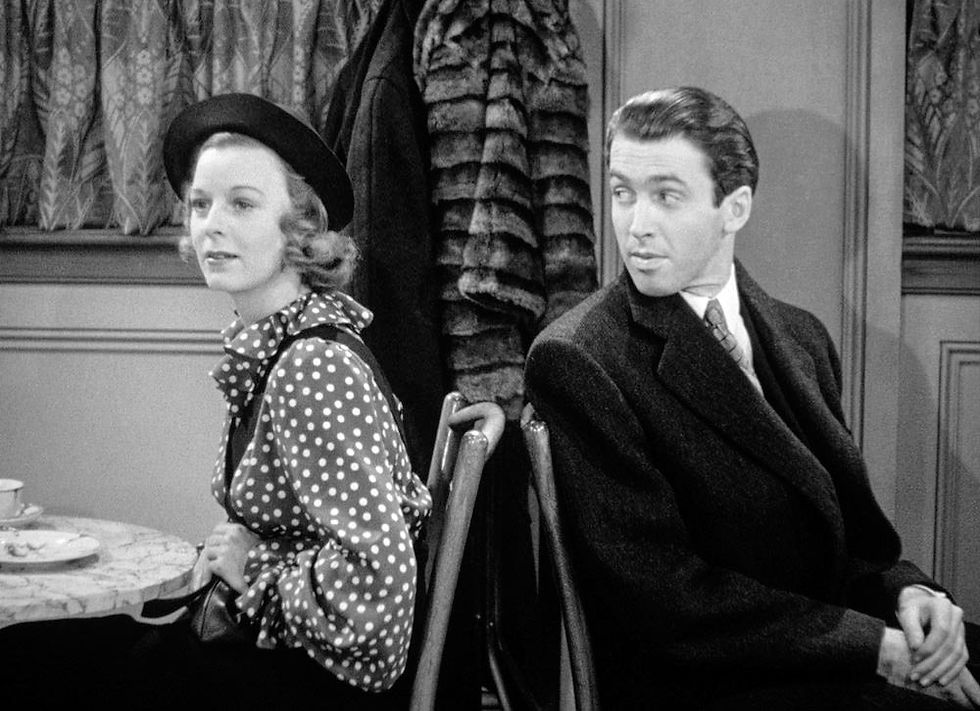
“The Shop Around the Corner” is the work of one of Hollywood’s most revered and influential directors, Ernst Lubitsch, known as the master of European-flavored, sophisticated light romantic comedy. And this film is a shining example of why he earned that title, as witty dialogue flies off the tongues of characters while poignant drama delicately unfolds in and around a shop in Budapest, Hungary. The shop is "Matuschek and Company”, and the film focuses on the its owner, “Hugo Matuschek” and half-dozen employees, particularly the store’s head sales clerk “Alfred Kralik”. The store’s longest reigning and most trusted employee, "Afred" gets along with everyone except for a new sales clerk named “Klara Novak”, who works directly for him.

At the start of the film, “Alfred” gets a letter from a girl he “met” through a lonely hearts newspaper ad that read: “Modern girl wishes to correspond on cultured subjects anonymously with intelligent, sympathetic young man”. Not knowing anything about the other except for their inner thoughts, feelings, and ways with words, the two have exchanged four letters thus far and fallen deeply in love, and he plans to meet and marry her. That narrative drives most of the film and is surrounded by issues that rise and fall about money, trust, loyalty, and the superficialities of living, and the film makes the point that with all of life’s troubles, a look below the surface is where one will find what’s really important. But first and foremost, “The Shop Around the Corner” is a satisfying love story, and a fabulous one at that. The film is so impressive that the American Film Institute (AFI) voted it the 28th Greatest Love Story of All-Time and Rotten Tomatoes gives it a 99% rating.

“The Shop Around the Corner” was based on the 1937 Hungarian play "Parfumerie" by Miklós László. Lubitsch bought the film rights and hired screenwriter Samson Raphaelson (who wrote nine of Lubitsch’s films) to adapt it for the screen (uncredited screenwriter Ben Hecht and others also contributed). The play and this very engaging film were inspiration for a 1949 Judy Garland musical remake “In the Good Old Summertime”, Nora Ephron’s 1998 romcom remake “You’ve Got Mail”, the 1996 Indian Tamil-language film "Kadhal Kottai", and the 1963 Broadway musical "She Loves Me”.

What may seem like a simple film brims with first-rate artistry that is so effortlessly employed it becomes invisible. And that’s what raises “The Shop Around the Corner” from just an ordinary movie into a classic. Lubitsch was known for his “Lubtisch Touch” (coloring material with his unique visual style and personal taste, transforming it into his own) and this film overflows with it. He would work with screenwriters, actors and crew before beginning to shoot a film, altering everything to suit his vision. Writer Anita Loos (who contributed to his 1934 film “The Merry Widow”) summed it up nicely in her autobiography “Kiss Hollywood Goodbye” when she said, “No matter who wrote Ernst’s scenarios, he himself put in the ‘Lubitsch touches’ that made his films unique”. As a result, Lubitsch’s films contain many shared qualities such as visual wit, high-quality sophistication, a slightly mischievous tinge, and non-predictable storytelling, and “The Shop Around the Corner” contains all these elements. Lubitsch was later quoted as saying this was his favorite of all his films.
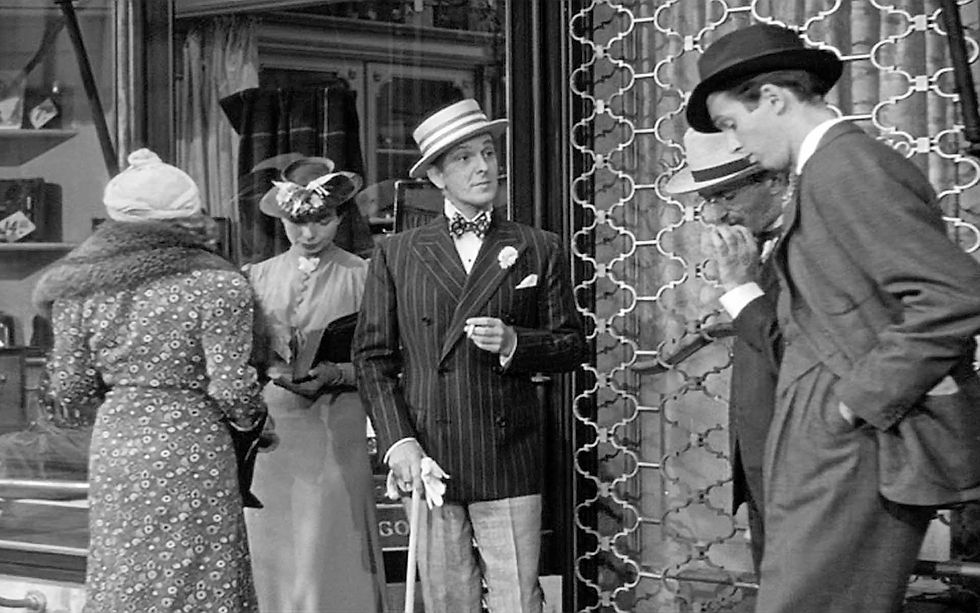
Known as a precise and economical director, Lubitsch wastes no time, finding the most intriguing ways to quickly forward the narrative. As an example, take this film's very opening scene, as we watch the employees of "Matuschek and Company” gather outside the shop waiting for it to open. Through their small talk, Lubitsch informs us about each of them, their distinct personalities, how they feel about each other, how they feel about “Mr. Matuschek”, and how they fit into the world of “Matuschek and Company”. It is an entertainingly masterful way to bypass exposition and give the audience needed background information. That's pure Lubitsch. Another stunning example is his shot of “Klara’s” hand rummaging through an empty mailbox. Such a simple, yet direct portrayal of heartfelt disappointment.
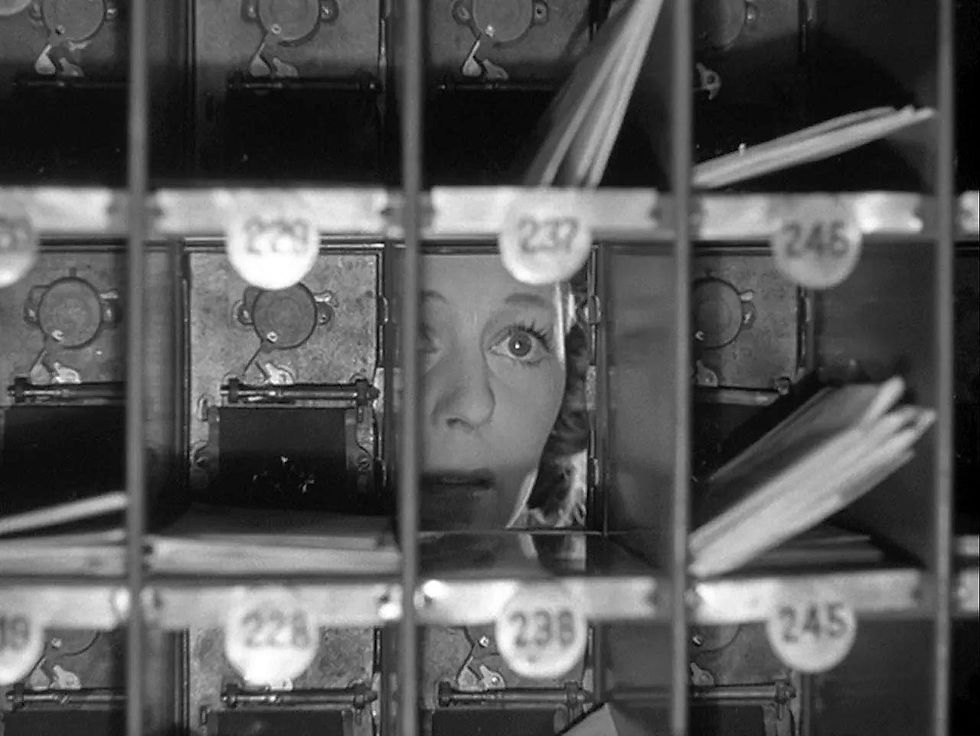
Lubitsch was also a master at creating atmosphere, especially one with a European flavor, and the world (including the store and employees) in “The Shop Around the Corner” comes off as incredibly real and European. That’s quite a feat considering that most of the cast were anything but European, particularly its two stars who are as American as apple pie. Just another testament of the brilliance of Lubtisch.

It’s good to keep in mind that everything one sees in a movie (from the action to the ambiance) could have been depicted in countless ways, and that what ends up onscreen is the preference and creation of its director (formed with the aid of a crew). And Lubtisch certainly left his personal mark on his works. Though lesser known today, he was a giant, admired by many of the greatest filmmakers of his time, including Orson Welles, Howard Hawks, Jean Renoir, Max Ophüls, Alfred Hitchcock, and Preston Sturges. Writer/director Billy Wilder idolized him and hung a sign in his office for inspiration that read, "How would Lubitsch do it?".

Lubitsch’s district style of filmmaking led him to become one of the most important directors to guide films towards modern Hollywood cinema, and even “The Shop Around the Corner” is an obvious precursor to the romcoms of today. You can read more about Ernst Lubitsch and his “touch” in my post on another of his classics, “To Be or Not To Be”. Just click on that film’s title to open that page.
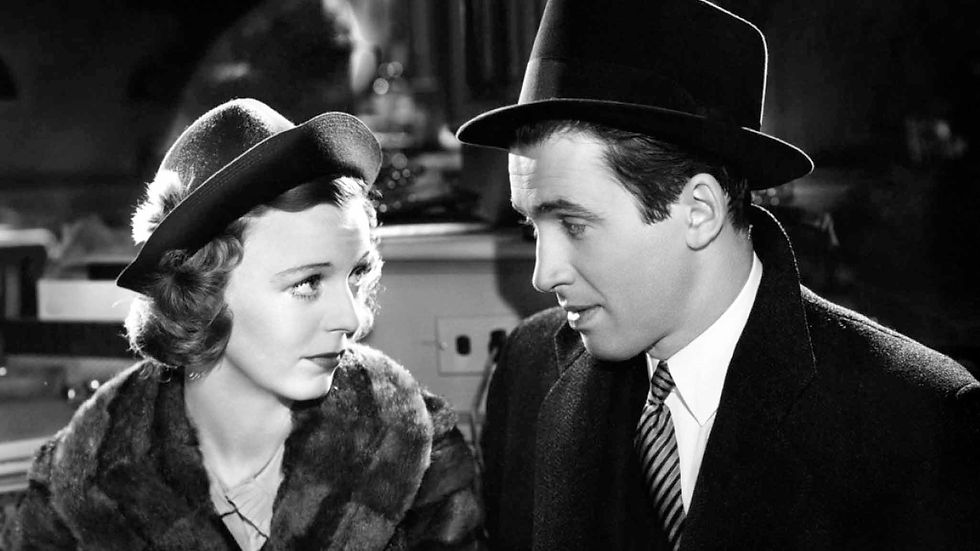
Helping capture and create the marvelous atmosphere and action in “The Shop Around the Corner” is cinematographer William Daniels. A cinematographer is responsible for the lighting and camerawork of a film, using both to enrich and underscore the director’s vision, and Daniels’ beautiful work adds subtext and emotion, such as brining levity through a brightly illuminated hospital room, or intimacy with a darkly lit ending. Daniels was one of Hollywood’s best, photographed many classics, and was the chosen cinematographer of actress Greta Garbo, and you will read more about him in an upcoming post.
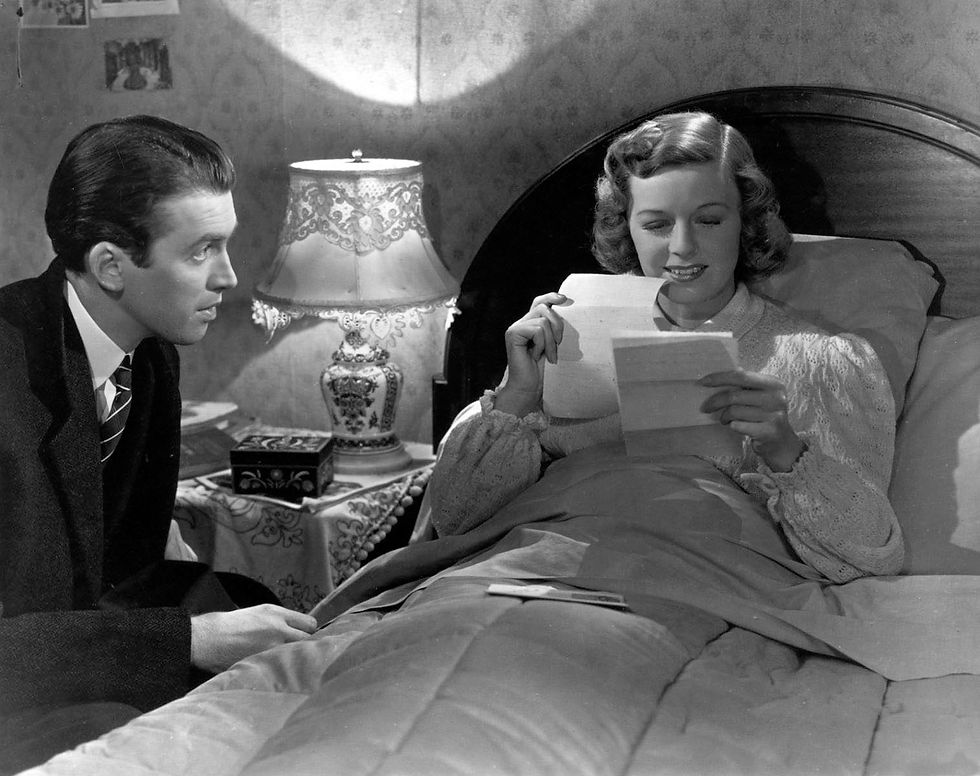
Also guided by the expert hand of Lubitsch are the collection of top acting talents, all of whom bring "The Shop Around the Corner” to life through vivid and stirring performances. That certainly includes Margaret Sullavan who stars as “Klara Novak”, the newest sales clerk at "Matuschek and Company”. With energy, humor, spot-on comic timing, and a lively intelligence, Sullavan makes “Klara” immensely sympathetic, even when spewing cruel insults at “Alfred”. Sullavan’s underplayed naturalness keeps the film relaxed and real, as if we are watching a true slice of life. She expertly keeps the romantic “Klara” wistful without being sweet. It is a finely skilled performance.
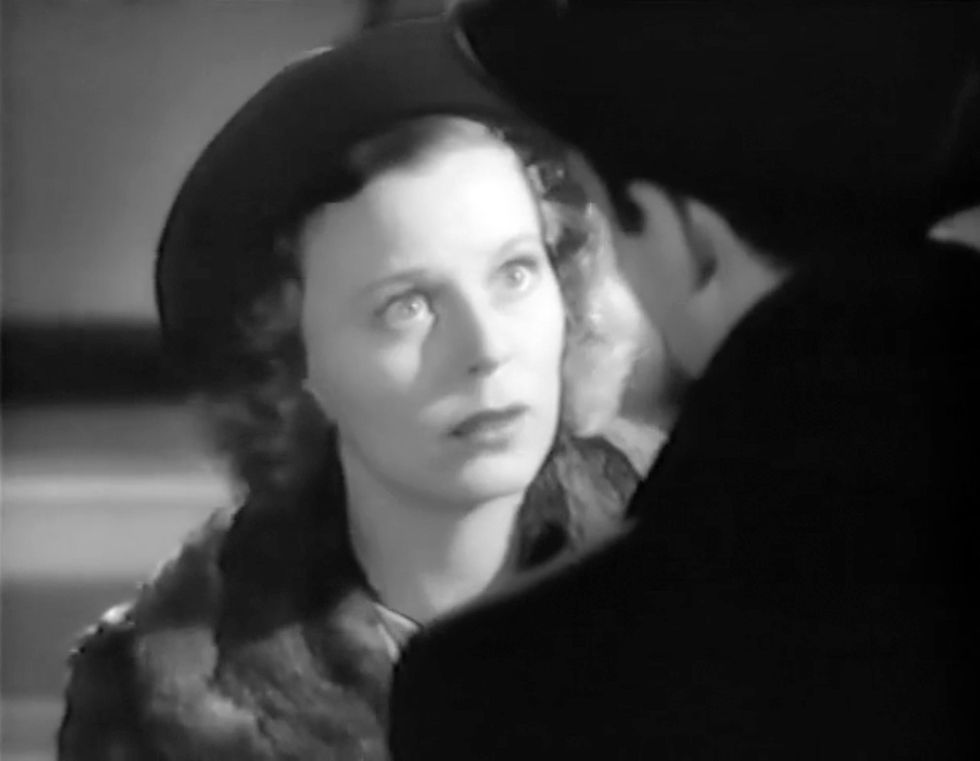
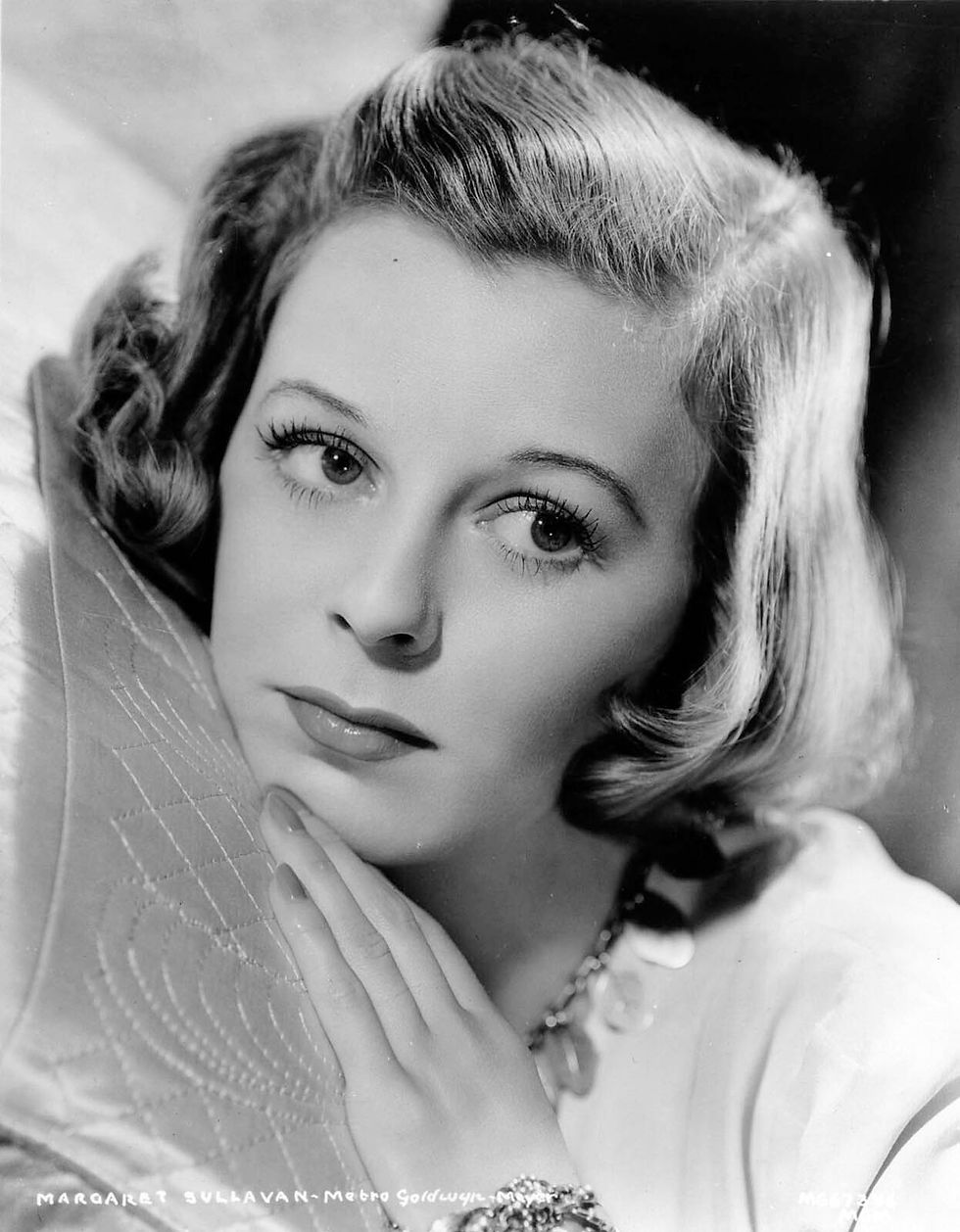
Virginia-born Margaret Sullavan's great love was the theater, where her career began and where she spent a large part of it. She first appeared on Broadway in 1926's "Hello, Lola", and in 1929 joined the University Players summer stock company alongside such actors as James Stewart, Henry Fonda, Mildred Natwick, and actor turned director, Joshua Logan. While replacing an actor in 1933’s “Dinner at Eight” on Broadway, Sullavan was spotted by film director John Stahl, who then cast her as the lead in his 1933 film, “Only Yesterday”, which became her dazzling film debut. After continually starring in films through 1936, she took a break from Hollywood to return to Broadway as "Terry Randall" in the original production of "Stage Door" (made into a film starring Katharine Hepburn in her role – a classic already on this blog).

Sullavan's return to Hollywood to make 1938's "Three Comrades” earned her a Best Actress Academy Award nomination (her only), after which she made more movies before taking another break to return to Broadway for 1943's "The Voice of the Turtle". Earning a reputation as tough, straightforward, and temperamental, and never quite warming up to Hollywood, Sullavan made only seventeen films in her career, her final being "No Sad Songs for Me" in 1950. After that, and several appearances on television, she decided to leave Hollywood and head back to Broadway. Her other films include "Cry 'Havoc'", "The Mortal Storm", "Back Street", "Little Man, What Now?", "The Good Fairy", and "The Shopworn Angel".

Sullavan suffered from congenital otosclerosis, which progressed over time, making her more and more hard of hearing (having to resort to lipreading in the last years of her life). She did her best to hide this from others, and as it worsened she became nervous, sleepless, and severely depressed. She was married four times, including to actor Henry Fonda, director William Wyler, and her agent and film producer Leland Hayward. Sullavan and Hayward had three children, and their divorce and her children's decision to stay with their father led her to a nervous breakdown. While on tour with the play “Sweet Love Remember’d”, Margaret Sullavan took an overdose of barbiturates in her hotel room and died on New Year’s day 1960 at the age of 50. Her daughter Bridget died of a drug overdose shortly after. In 1977, her eldest daughter, actress Brooke Hayward, wrote a best-selling autobiography, "Haywire", recounting her mother's life. "Haywire" was adapted into a 1980 TV movie produced by Sullavan’s son William Hayward (who died of a self-inflicted gunshot wound in 2008). It starred Lee Remick as Sullavan.


Starring opposite Sullavan in “The Shop Around the Corner” is James Stewart as “Alfred Kralik”, the shop’s leading sales clerk. Stewart is a magnetic force and his sincere performance is quite touching. With this role he shows his versatility with both comedy and drama, and does so with deep seated, unspoken emotion. It’s an outstanding performance. This film fit James Stewart’s early screen persona to a T, as “Alfred” is kind, somewhat gentle, and almost noble. It came at a high point in Stewart’s long and distinguished career. He had just earned his first Best Actor Oscar nomination for Frank Capra’s 1939 classic “Mr. Smith Goes to Washington”, immediately followed by a starring role in the 1939 classic Western “Destry Rides Again”. “The Shop Around the Corner” was next and was the first of four films he made released in 1940, the last being “The Philadelphia Story”, which won him his only competitive Best Actor Academy Award. By this point, Stewart had become a top A-list movie star, and would remain so for the rest of his life. You can read more about James Stewart in my posts on his other classics “The Philadelphia Story”, "It's a Wonderful Life", and "You Can't Take It with You”. Please check them out.

Knowing Stewart from their University Players days, Sullavan requested him as her costar in her 1936 film, "Next Time We Love". It was a career jump for Stewart from small parts to a lead and he was nervous and inexperienced, and Sullavan helped coach him for the camera (it’s been said she helped turn James Stewart into James Stewart). The pair made a total of four films together, the other two being "The Shopworn Angel” in 1938 and "The Mortal Storm" also in 1940. They had a deep affection for one another, and reportedly Sullavan was Stewart's one true love, though they never married. Stewart didn't marry until 1949, and his wife interestingly looked a lot like Sullavan. Whatever their offscreen relationship, onscreen Stewart and Sullavan have an affecting chemistry grounded in intimate tenderness. Lubitsch must have been aware of this, for he would only make this film with both of them and even postponed production until they were each free (directing his 1939 classic "Ninotchka" in the meantime).


Another stellar performance in “The Shop Around the Corner” is that of Frank Morgan as shop owner “Hugo Matuschek”. A firm yet kindhearted boss, “Hugo” experiences perhaps the largest gamut of emotions in the course of the film, and the very talented Morgan manages to offer a very moving and honest portrayal that is simply a joy to watch. Known primarily known for his comedic roles, this role gave Morgan a great chance to show his range, as he carries the film’s main drama and still adds a bit of humor. A prolific actor who appeared in 100 films in just over thirty years, he is immortalized today by his appearance the year before as the title character in “The Wizard of Oz”, and you can read more about the remarkable Frank Morgan in my post on that all-time classic.

Joseph Schildkraut plays "Ferencz Vadas", the bootlicker of a shop clerk who likes to stir up trouble. “Ferencz” is fake-nice, gossipy, and impertinent, and Schildkraut triumphs in making such a sleazy character humanly relatable. Everyone has known this type of guy at some point.


The son of an actor, Austrian-born Joseph Schildkraut traveled with his father to the US, returning to Europe to study acting with famed German teacher Max Reinhardt. After a very successful stage career, he began in films with the 1915 German silent film "Dämon und Mensch". Nearly a dozen films later, he made his way to the US, simultaneously launching successful Broadway and film careers in 1921. His impressive US screen debut was in D.W. Griffith's 1921 film "Orphans of the Storm". He flourished both on stage and screen for just over fifty years, accruing 87 film and TV credits, winning a Best Supporting Actor Academy Award along the way for the 1937 film "The Life of Emile Zola". Schildkraut has appeared in prominent supporting roles in many classic films, such as "Judas Iscariot" in Cecil B. DeMille's 1927 classic "The King of Kings”, "Gaylord Ravenal" in the 1929 classic musical "Show Boat", "Herod" in 1934's "Cleopatra", and perhaps his best remembered role, as the father "Otto Frank" in 1959's "The Diary of Ann Frank" (earning him a Best Actor Golden Globe nomination). His final role was as "Nicodemus" in 1965’s "The Greatest Story Ever Told". He was married three times. Joseph Schildkraut died in 1964 at the age of 67.
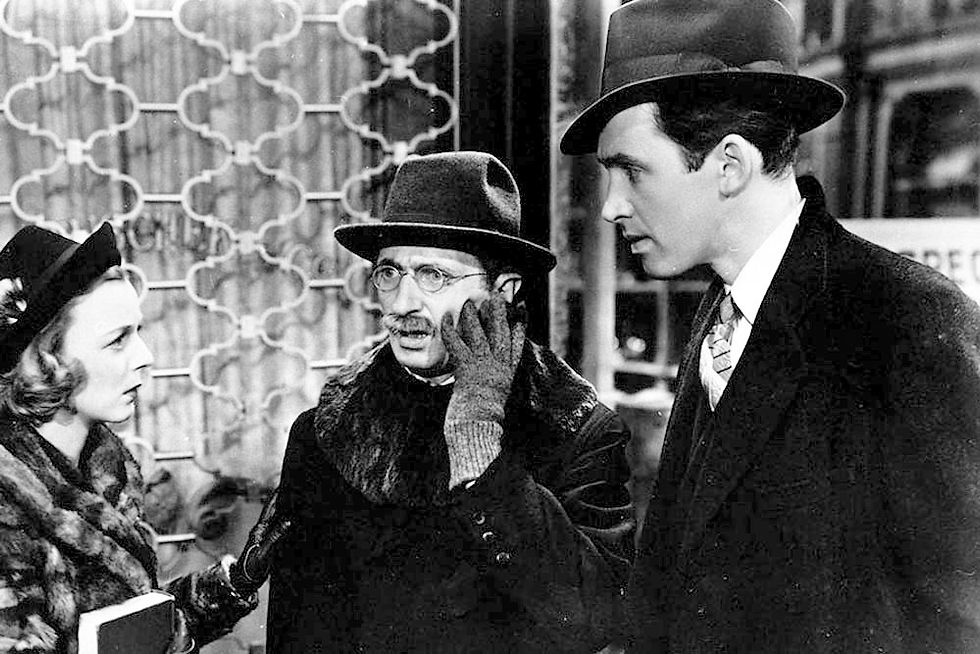
Another face that should be familiar to those watching the films on this blog is that of Felix Bressart, who plays the skittish older clerk “Pirovitch”. A family man with a wife and kids, “Pirovitch” is afraid of losing his job, and the soft-spoken, highly sympathetic Bressart makes him completely endearing. It is another of the film’s very touching, first-rate performances. Bressart has a very important and memorable role in a previous classic already on this blog, “To Be or Not To Be”, thought I didn't get to write about him in my post.


German (East Prussia, now Russia) born Felix Bressart began with a successful European stage career. His film career began in Germany in 1928's "Liebe im Kuhstall". Being Jewish, his steady German film career was halted with the rise of the Nazis in 1933, and he fled to Austria where he continued to make German-language films before heading to America in 1928. His friend, film director Henry Koster (another German Jew who fled Germany), helped Bressart get work by casting him in his first Hollywood film, Koster’s "Three Smart Girls Grow Up” in 1939. Lubitsch also cast him in a substantial role in 1939's "Ninotchka", which is where Metro-Goldwyn-Mayer took notice and signed Bressart to a contract. As an MGM contract player he worked regularly, appearing in seven films in 1940 alone. With his accent, Bressart was often stereotyped as the gentle friend, scientist, academic, buffoon, or professor – often displaying humor and pathos at the same time. No matter what he plays, Bressart is always supremely entertaining. Other notable titles from his 68 films include "Comrade X", "The Seventh Cross", "Portrait of Jennie", "Edison, the Man", "Without Love", and "Blossoms in the Dust". He was married once, until his death. Felix Bressart died of leukemia in 1949 at the age of 57.
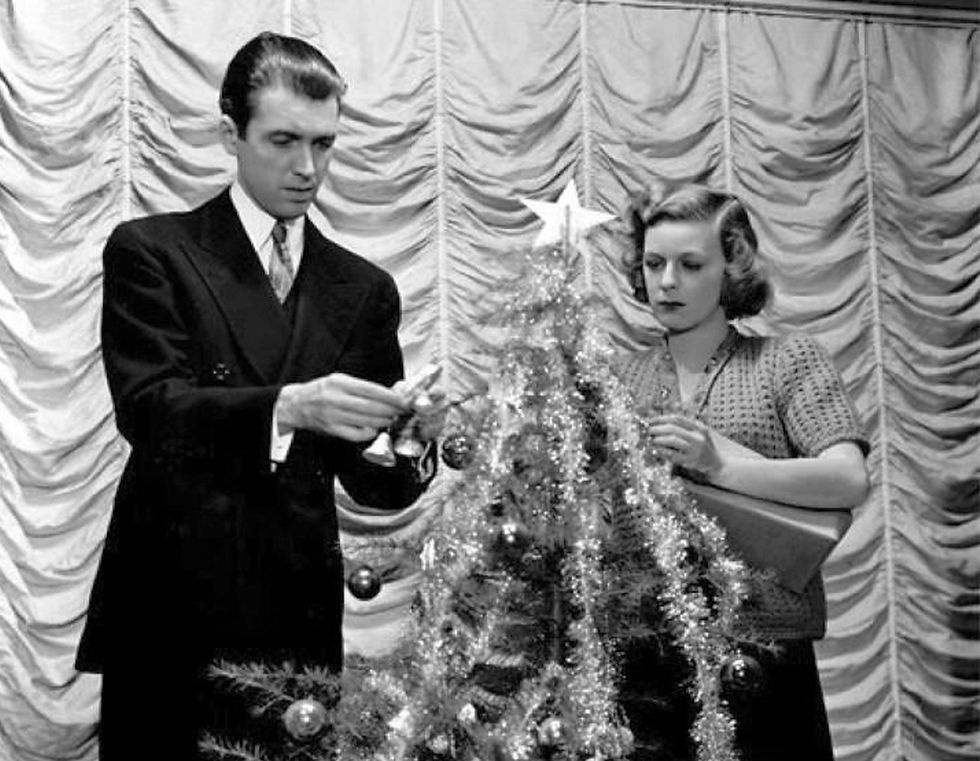
Two more names that should be familiar to readers of this blog are that of the film’s recording director Douglas Shearer and its art director Cedric Gibbons. Both oversaw their respective departments for virtually all of MGM's films during their careers. I wrote more about Shearer in my post on “Mrs. Miniver”, and Gibbons on my post about “The Philadelphia Story”. Just click the titles to find out more.

With its stellar direction, lively performances, razor sharp dialogue, and phenomenal atmosphere, this week’s film is a golden example of why movies are so enjoyable. Made by a team who truly knew how to make great films, it's engaging from start to finish and certain to make you smile, laugh, and maybe even cry. Enjoy a verifiably delightful classic often cited as a holiday favorite, “The Shop Around the Corner”!
This blog is a weekly series (currently biweekly) on all types of classic films from the silent era through the 1970s. It is designed to entertain and inform movie novices and lovers through watching one recommended classic film a week. The intent is that a love and deepened knowledge of cinema will evolve, along with a familiarity of important stars, directors, writers, the studio system, and a deeper understanding of cinema. I highly recommend visiting (or revisiting) the HOME page, which explains it all and provides a place where you can subscribe and get email notifications for every new post. Visit THE MOVIES page to see a list of all films currently on this site. Please leave comments, share this blog with family, friends, and on social media, and subscribe so you don’t miss a post. Thanks so much for reading!
YOU CAN STREAM OR BUY THE FILM HERE:
PLACES YOU CAN BUY THE FILM:
As an Amazon Associate I earn from qualifying purchases, and any and all money will go towards the fees for this blog. Thanks!!





Wow, another thorough history on a classic movie. I can’t wait to watch this again. It never gets old. And to realize the ‘Wizard’ of Oz was in this flick attracts this Oz fan even more.